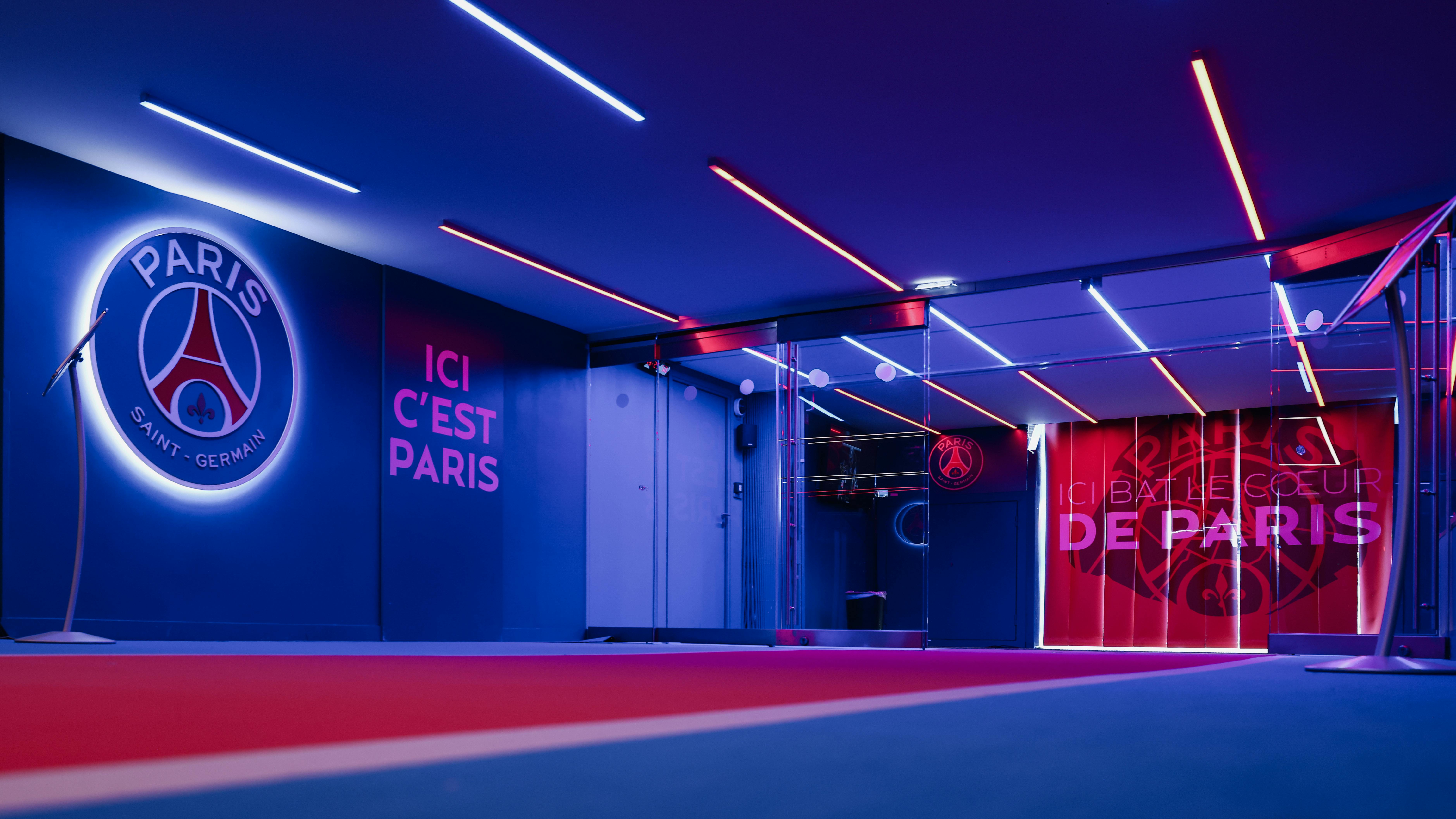Discover Why Champions League Elite Clubs Dominate
TL;DR (Quick Answer)
Elite clubs consistently dominate the Champions League through a powerful blend of financial might, world-class player recruitment, tactical innovation, deep squad resources, and a winning culture, driving their superior performance on Europe's biggest stage.
Introduction
Ah, the Champions League! Just hearing those iconic anthem notes can send shivers down any football fan's spine. It's more than just a tournament; it's the pinnacle of European club football, a dazzling showcase where the continent's giants clash in pursuit of glory. Every season, as the group stages unfold and the knockout rounds loom, we find ourselves glued to the Champions League table, eagerly tracking our favorite teams. But here's a pattern that's hard to ignore: year after year, the same elite clubs seem to rise to the top, consistently outperforming their rivals and making deep runs into the competition. Have you ever wondered why? What secret sauce do these behemoths possess that allows them to maintain such a stranglehold on European football? Is it simply about money, or is there something deeper, more intricate, at play?
In this deep dive, we're going to pull back the curtain and explore the multifaceted reasons behind the sustained dominance of Europe's top footballing institutions. We'll peel back the layers of the Champions League table, looking beyond just points and goal differences, to understand the fundamental drivers that propel these clubs forward. From their unparalleled financial resources and shrewd player recruitment strategies to their cutting-edge tactical approaches and the powerful legacy of their club cultures, we'll uncover what truly sets them apart. Get ready to understand why some teams aren't just participating in the Champions League; they're dictating its narrative, consistently shaping the landscape of European football.

What is the Champions League Table?
At its core, the Champions League table is simply the traditional way of displaying the standings within each of the eight groups during the competition's group stage. Think of it like any league table you're familiar with, but on a grander, continental scale. After a series of thrilling qualifying rounds, 32 teams are sorted into eight groups of four. Each team plays every other team in their group twice—once at home and once away. The results of these matches are then tallied up, and that's where the table comes into play.
For every win, a team typically earns three points. A draw nets them one point, and a loss, well, that's zero points. These points accumulate over the six group stage matches. The table also tracks other crucial metrics like goals scored (GS), goals conceded (GC), and goal difference (GD), which is simply GS minus GC. These secondary metrics become incredibly important, especially when teams are tied on points. Head-to-head records are often the first tie-breaker, followed by goal difference, and then goals scored. It’s a nail-biting process, often coming down to the final match day to see who progresses.
The stakes couldn't be higher. The top two teams from each group proudly march on to the knockout stages, where the competition intensifies with two-legged ties. The team finishing third isn't entirely out of European football; they get a second chance in the UEFA Europa League, a kind of continental consolation prize. Finishing fourth, however, means the end of their European journey for that season. So, while it might seem like a simple ranking system, the Champions League table is a dynamic, constantly shifting narrative that dictates the destiny of Europe's footballing elite, separating the contenders from those who will simply watch the rest of the action unfold.
Why is Elite Club Dominance Important?
The consistent dominance of elite clubs in the Champions League isn't just a quirky statistical observation; it's a phenomenon with profound implications, shaping the very fabric of modern football. For starters, it directly influences the competitive balance of the sport. When the same few clubs consistently reach the latter stages, it can create a perception of predictability, potentially dulling the excitement for some fans who crave more 'Cinderella stories' or unexpected upsets. We all love an underdog, don't we? But in the Champions League, those stories are becoming increasingly rare.
Beyond the pitch, this dominance has massive financial ramifications. Success in the Champions League brings with it gargantuan prize money, increased sponsorship deals, and enhanced global brand recognition. This creates a virtuous cycle: the more successful a club is, the more money it earns, which in turn allows it to invest further in top talent, state-of-the-art facilities, and world-class coaching staff. This widening financial gap makes it incredibly difficult for smaller or less affluent clubs to compete, exacerbating the divide between the footballing rich and the rest. It essentially creates a super-league within a league, where only a select few truly have a realistic shot at lifting the coveted trophy.
Furthermore, elite club dominance shapes player movements and career aspirations. The best players in the world naturally gravitate towards clubs that offer the highest chances of winning major trophies, especially the Champions League. This concentrates talent even further, making it harder for mid-tier clubs to retain their star players or attract new ones. It also influences the tactical and strategic evolution of the game. These elite clubs often have the resources to innovate, experiment with new formations, and employ advanced sports science, setting benchmarks that others scramble to follow. Their successes and failures often dictate the next big trend in football. In essence, the dominance of these giants isn't just about their trophy cabinet; it's about their colossal influence on the sport's economy, talent distribution, tactical development, and even the emotional engagement of fans worldwide.
The Anatomy of Elite Club Dominance in the Champions League
So, what exactly fuels this relentless dominance? It’s rarely one single factor, but rather a complex interplay of several interconnected elements. Think of it as a meticulously crafted machine, where each component works in perfect synchronicity to achieve unparalleled results. Let's break down the key pillars that consistently propel elite clubs to the top of the Champions League table.
1. Financial Power & Investment: The Bedrock of Success
Let's be honest, in modern football, money talks. And for elite clubs, it often shouts. Their financial muscle is arguably the most significant differentiator. This isn't just about buying expensive players; it's a sophisticated ecosystem of revenue generation and strategic investment. Where does this money come from? Massive television deals, lucrative sponsorship agreements with global brands, enormous matchday revenues from packed stadiums, and highly effective merchandising operations that sell jerseys and memorabilia worldwide. These multi-million, often billion-dollar, enterprises generate colossal incomes that are then strategically reinvested.
This reinvestment goes far beyond simply splashing cash on transfer fees. It funds world-class youth academies designed to scout and develop the next generation of superstars from a young age, ensuring a continuous pipeline of talent. It pays for state-of-the-art training facilities, cutting-edge sports science departments, and medical teams that utilize the latest technology to keep players in peak physical condition and minimize injury downtime. Furthermore, financial power allows clubs to offer top-tier salaries, attracting the best coaches, analysts, and backroom staff, creating an environment where excellence is not just expected but meticulously supported. This financial stability also means they can retain their star players, warding off interest from rivals, and building a cohesive squad over several seasons. Without this solid financial foundation, sustaining success at the elite level is an almost impossible task.
2. World-Class Player Recruitment & Development: The Talent Magnet
Even with unlimited funds, you still need to spend wisely. Elite clubs excel at identifying, acquiring, and nurturing talent. Their scouting networks are global, extending into every corner of the footballing world, meticulously tracking thousands of players. They don't just look for raw talent; they look for players who fit their specific tactical philosophies, possess the right mentality, and have the potential to grow within the club's system. When they do sign a player, it's often a calculated move, filling a specific need or enhancing an already strong position.
But recruitment is only half the battle. Once these players arrive, they are immersed in an environment designed for maximum development. This includes personalized training regimes, access to specialist coaches for specific skills (like striking or defensive positioning), sports psychologists to hone mental resilience, and nutritionists to optimize their physical condition. The youth academies, often costing tens of millions to run, are crucial here. Clubs like Barcelona (La Masia) and Ajax have historically produced a conveyor belt of world-class talent, integrating them into the first team when ready. This blend of shrewd external recruitment and robust internal development ensures that elite clubs not only have star players today but are also building the stars of tomorrow, maintaining a competitive edge year after year.
3. Tactical Innovation & Coaching Excellence: The Masterminds
Behind every dominant team is an exceptional coach and a clear tactical vision. Elite clubs invest heavily in securing the brightest footballing minds in the game. These aren't just managers; they are often visionary leaders, tactical savants, and master motivators. They bring with them intricate philosophies, whether it's high-pressing 'Gegenpressing', possession-based 'Tiki-Taka', or a fluid, attacking style. What's more, they are adaptable. They can analyze opponents, identify weaknesses, and adjust their tactics mid-game or between matches, often surprising rivals.
But it's not just the head coach. Elite clubs boast extensive backroom staff: assistant coaches specializing in defense or attack, set-piece coaches, video analysts who dissect every movement, and data scientists who provide statistical insights. This collective brain trust ensures that every aspect of the game is meticulously planned and executed. They spend countless hours on the training ground, drilling players in specific movements, defensive shapes, and attacking patterns until they become second nature. This tactical sophistication, combined with the ability to get the very best out of a squad of world-class individuals, is a cornerstone of their consistent Champions League performance. They don't just play; they strategize, innovate, and execute with precision.
4. Club Culture & Legacy: The Intangible Advantage
Beyond the tangible assets, elite clubs possess a powerful, often intangible, advantage: their deep-rooted club culture and winning legacy. When a player signs for Real Madrid, Bayern Munich, or Manchester United, they're not just joining a team; they're becoming part of a storied institution steeped in history and success. This history creates an inherent pressure and expectation to win, which can either make or break a player. For those who thrive under it, it becomes a powerful motivator.
This culture is often characterized by a relentless pursuit of excellence, a never-say-die attitude, and a strong sense of identity. Young players coming through the academy are instilled with these values from an early age. Experienced players who join are quickly integrated into this mindset. The atmosphere around these clubs, fueled by passionate fan bases, tradition, and the weight of past glories, creates a unique environment. This winning mentality becomes ingrained, often allowing these teams to find ways to win even when they're not playing their best, or to bounce back from setbacks with remarkable resilience. The very badge on their chest carries a psychological weight that can intimidate opponents and inspire their own players to achieve greatness.
5. Squad Depth & Injury Management: The Long Haul
The Champions League isn't a sprint; it's a marathon. Competing on multiple fronts—domestic league, domestic cup, and European competition—demands an incredibly deep and talented squad. Elite clubs recognize this, often having two or even three high-quality players for each position. This depth allows them to rotate players, managing fatigue, preventing burnout, and providing cover for injuries or suspensions without a significant drop in quality. Imagine losing your star striker, but having another proven goal-scorer ready to step in without missing a beat. That's the luxury of squad depth.
Coupled with this is sophisticated injury management. With dedicated sports scientists, physiotherapists, and medical staff employing the latest diagnostic tools and rehabilitation techniques, elite clubs are adept at minimizing injuries and ensuring swift, safe returns for players. They understand the physical demands of modern football and tailor individual training loads. This meticulous approach to physical conditioning and rotation is crucial for navigating the grueling schedule of a Champions League campaign, particularly as the knockout stages progress and every game becomes a high-stakes affair. The ability to maintain peak performance from a diverse group of players throughout an entire season is a testament to their superior planning and resource allocation.
6. Global Fan Base & Home Advantage: The 12th Man
The support an elite club commands extends far beyond its city limits. Clubs like Real Madrid, Manchester United, and Bayern Munich boast global fan bases numbering in the hundreds of millions. This not only translates into massive commercial revenue but also provides an incredible psychological boost, especially during crucial Champions League nights. Playing at iconic stadiums like the Santiago Bernabéu, Old Trafford, or the Allianz Arena when they're rocking with passionate supporters creates an intimidating atmosphere for visiting teams. The roar of the crowd, the incessant chanting, and the unwavering belief from the stands can genuinely act as a '12th man', spurring players on and intimidating opponents.
This home advantage isn't just a romantic notion; studies have shown its tangible impact on results. Players often report feeling more energized, taking more risks, and playing with greater confidence when backed by their home crowd. For elite clubs, this means turning their home ground into a fortress, a place where points are rarely dropped in the Champions League group stage and where knockout ties can be dramatically swung. The sheer scale and intensity of their fan support, both locally and globally, is another powerful, if often underestimated, factor in their consistent outperformance.
Comparison Table: Elite vs. Rising Contender
To further illustrate what truly sets the dominant clubs apart, let's look at a quick comparison between a typical 'Elite Club' and a 'Rising Contender' – a club that might consistently qualify for the Champions League but struggles to make the very deep runs.

Common Mistakes / Misconceptions About Elite Club Dominance
When we talk about the powerhouses of European football, it's easy to fall into certain traps or hold onto misconceptions. Let's clear up some common ones that often cloud the discussion around why these clubs are so consistently successful.
- Mistake 1: 'It's Just About Money, Nothing Else.'While financial power is undoubtedly a colossal factor, boiling down elite club dominance solely to money is overly simplistic and unfair. Think about clubs like Paris Saint-Germain, who have had immense financial backing for years but have only recently started to consistently challenge for the Champions League title, and even then, haven't quite reached the summit. Money allows for better players, facilities, and staff, yes, but it doesn't guarantee cohesion, a winning mentality, or tactical brilliance. You can buy individual talents, but you can't buy team chemistry, a robust club culture, or an astute coach who can knit it all together. A poorly run club with endless cash can still underperform, proving that smart management, strategic planning, and a deep understanding of football are just as crucial, if not more so, than simply having deep pockets.
- Mistake 2: 'One Star Player is Enough to Win the Champions League.'Football is a team sport, and while a Lionel Messi or a Cristiano Ronaldo can undoubtedly elevate a team, even they couldn't win the Champions League entirely on their own. History is replete with examples of individual brilliance being stifled by well-drilled, cohesive teams. Elite clubs understand that true success comes from a balanced squad where every player, from the goalkeeper to the furthest attacker, understands their role and executes it to perfection. They focus on having strength in depth across all positions, ensuring that if one star has an off day, or an injury strikes, there are capable replacements. Relying on a single superstar to carry the team is a fragile strategy that rarely holds up against the tactical variations and collective strength of Europe's very best sides over a grueling campaign.
- Mistake 3: 'Tactics are Static and Don't Really Change.'Quite the opposite! Modern football, especially at the elite level, is a constant game of cat and mouse, a chess match where tactical innovation is key. Coaches at top clubs are continuously analyzing opponents, scouting for new trends, and adapting their systems. What worked last season might be figured out this season. From the evolution of formations (remember the death and rebirth of the back three?) to the nuances of pressing schemes, counter-attacking strategies, and set-piece routines, tactics are always in flux. Elite clubs invest heavily in video analysis and data science to gain even the slightest tactical advantage. A rigid, unchanging tactical approach would quickly be exposed by the flexibility and analytical prowess of their Champions League rivals. Adaptability, not stagnation, is a hallmark of truly dominant teams.
- Mistake 4: 'Winning is Purely Down to Luck.'While luck can play a small part in any single football match—a referee's decision, a deflected shot, an opponent's slip—attributing consistent Champions League dominance to luck is a profound misunderstanding. The very definition of 'consistent dominance' implies that success is repeatable, which by its nature, removes 'luck' as the primary driver. Elite clubs are not lucky; they are prepared. They create their own 'luck' through meticulous preparation, superior talent, tactical acumen, mental resilience, and the sheer quality that allows them to overcome adversity. They have the resources to mitigate unfortunate events, recover from bad calls, and still find a way to win. Over multiple seasons and dozens of Champions League matches, the cream always rises to the top, and that's down to systematic excellence, not chance.
Benefits of Elite Club Dominance for Football
While it's easy to lament the lack of 'fairytale' winners in the Champions League, the consistent dominance of a handful of elite clubs isn't without its significant benefits for the sport of football as a whole. In fact, these powerhouses often drive innovation, raise standards, and amplify the global appeal of the beautiful game.
- Benefit 1: Higher Quality of Football:When the best players, best coaches, and best resources are concentrated in a few clubs, the standard of football they produce is often breathtakingly high. These clubs push the boundaries of what's possible on the pitch, showcasing unparalleled technical skill, tactical sophistication, and athletic prowess. The Champions League final, almost invariably contested by two elite teams, is often a masterclass in modern football, offering spectacular goals, intricate passing movements, and thrilling end-to-end action. This high quality serves as a benchmark for all other clubs, encouraging them to strive for similar levels of excellence in their own leagues and competitions. It's like having Formula 1 where the top teams continuously innovate, setting new standards for speed and engineering.
- Benefit 2: Global Reach and Popularity:The consistent presence of global brands like Real Madrid, Barcelona, Manchester United, and Bayern Munich in the latter stages of the Champions League significantly enhances the tournament's, and indeed football's, worldwide appeal. These clubs have massive, established fan bases across continents, and their success draws in new viewers and casual fans who want to witness the best playing against the best. This global popularity translates into massive broadcast deals, sponsorship opportunities, and merchandising sales, which in turn feed more money back into the sport, allowing for greater investment at all levels, from grassroots development to elite infrastructure. The Champions League becomes a global spectacle precisely because these world-renowned clubs are consistently at its forefront.
- Benefit 3: Innovation in Tactics and Training:Elite clubs, with their vast resources and access to top analytical minds, are often at the forefront of tactical and training innovations. They have the financial muscle to experiment with new sports science techniques, cutting-edge training methodologies, advanced data analytics, and different tactical systems. Many of the trends we see in football today, from high pressing to inverted full-backs, often originate or are perfected within these elite environments before filtering down to other leagues and clubs. They act as laboratories for footballing evolution, constantly pushing the boundaries of what's possible, forcing other teams to adapt and improve simply to keep pace. This continuous innovation ultimately enriches the game for everyone.
- Benefit 4: Benchmark for Aspiring Clubs:While it might seem daunting, the dominance of elite clubs provides a clear, aspirational benchmark for other teams. Clubs that want to compete at the highest level know exactly what they need to achieve in terms of squad quality, tactical sophistication, financial health, and club infrastructure. Their success stories, and even their occasional failures, offer valuable lessons. It encourages clubs to invest in their academies, improve their scouting, optimize their financial models, and seek out the best coaching talent. In essence, the elite clubs raise the tide for the entire footballing ocean, inspiring ambition and driving improvement throughout the European football pyramid.
Key Insights and Expert Tips for Spotting Potential Champions League Dominance
Understanding the factors behind elite club dominance isn't just academic; it can also help you become a more informed fan, or even make smarter predictions if you're into sports betting. Here are some key insights and expert tips to help you spot which teams are truly built for Champions League success, and perhaps even identify a potential upset when the odds seem stacked.
Firstly, **look beyond the current league form**. A team might be flying high domestically but lack the squad depth or European experience needed for the Champions League grind. The Champions League is a different beast altogether, demanding mental fortitude and tactical flexibility that goes beyond weekly league encounters. Pay close attention to how teams perform against top-tier opposition in their domestic leagues and in previous European campaigns.
Secondly, **assess the coach's track record in knockout football**. Some managers are brilliant tacticians in a league format but struggle with the high-stakes, two-legged ties of the Champions League. A coach who has consistently guided teams deep into the competition, or even won it, often possesses that crucial blend of tactical acumen and psychological management required to succeed under immense pressure. Their ability to make mid-game adjustments and motivate players when stakes are highest is paramount.
Thirdly, **squad depth isn't just about big names; it's about quality backups**. As discussed earlier, injuries and suspensions are inevitable. Does a team have reliable players who can step in without a significant drop in quality? Look at their bench and their options for rotation. A team with a strong second string can absorb knocks and maintain performance levels throughout the grueling schedule, especially in the latter stages when fixtures come thick and fast. This is a subtle but critical factor often overlooked.
Fourthly, **consider the team's mental resilience and European experience**. Have they been there before? Have they overcome adversity in previous knockout rounds? Teams with a history of deep Champions League runs often possess an intangible mental toughness that helps them navigate tight situations. Newer teams, while talented, can sometimes buckle under the pressure of the big European stage. Look for veteran players who have been there and done that; their calm presence can be invaluable.
Lastly, **don't underestimate the home advantage in crucial knockout ties**. While away goals rules have changed, the psychological boost of a roaring home crowd remains immense. Is the team strong at home against top opposition? Can they create an intimidating atmosphere that affects the visiting team? This can often be the marginal gain that swings a tie. For those who enjoy the thrill of predicting outcomes and backing their insights, these factors can provide a more informed perspective. If you're looking to put your knowledge to the test and engage with the beautiful game on another level, you might want to consider where to place your wagers. You can Place your bets on Bantubet Kenya for a secure and exciting experience.
FAQs
1. Why do some elite clubs struggle occasionally in the Champions League?
Even the biggest clubs can have an off-season. This often comes down to a confluence of factors: a key player's long-term injury, a dip in form for several star players simultaneously, a period of managerial transition, or simply a particularly tough draw in the group or knockout stages. Sometimes, a lack of squad cohesion or tactical fatigue can set in after years of intense competition. It’s rare for these struggles to be prolonged, but even giants can stumble.
2. How much does money really matter in the Champions League?
Money matters significantly, but it's not the only factor. It provides the foundation for success – allowing clubs to buy top talent, afford world-class facilities, and pay competitive wages. However, simply spending money doesn't guarantee success. Smart investment, effective management, tactical brilliance, and a strong team culture are all essential to translate financial power into on-field dominance. It's a powerful enabler, not a magic bullet.
3. Can an underdog team ever win the Champions League?
While extremely difficult in the modern era, it's not impossible. Teams like Porto in 2004 or Leicester City in the Premier League show that with exceptional tactical genius, incredible team spirit, a bit of luck, and a few star players performing above expectations, anything can happen. However, sustaining that level of performance over an entire Champions League campaign, against multiple elite teams, is the monumental challenge that makes such triumphs incredibly rare.
4. What role does luck play in Champions League success?
Luck always plays a minor role in individual matches—a deflection, a referee's call, an opponent's mistake. However, consistently winning or going deep in the Champions League over many years is not down to luck. It's a reflection of consistent quality, strategic planning, and superior resources. While a single lucky bounce can decide a game, it doesn't explain why certain clubs repeatedly appear at the top of the Champions League table.
5. How do elite clubs identify future stars?
Elite clubs employ extensive global scouting networks, often with hundreds of scouts worldwide. They use advanced data analytics and video analysis to identify players who fit their specific profiles, not just for the first team but also for their youth academies. They look for not just technical ability but also mental strength, tactical understanding, and potential for growth, often signing players at a young age and nurturing them through their development pathways.
6. Is the gap between elite clubs and others widening or narrowing?
Generally, the gap appears to be widening, largely due to the increasing financial disparities driven by commercial revenues, sponsorship, and broadcast deals. The Champions League itself, with its lucrative prize money, contributes to this cycle. While some clubs with smart management and astute investment can occasionally bridge the gap for a season or two, maintaining that challenge over a sustained period against the financial might of the traditional elites is an ever-growing challenge.
Conclusion
As we've journeyed through the intricate world of the Champions League table and the forces driving elite club dominance, one thing becomes abundantly clear: their consistent outperformance is far from accidental. It's a meticulously engineered symphony of financial power, world-class talent acquisition, tactical brilliance, robust squad depth, a deeply ingrained winning culture, and a colossal global fan base. These aren't just football clubs; they are sophisticated global enterprises, operating at the absolute pinnacle of their sport, constantly innovating and pushing boundaries.
They set the standards, drive the trends, and provide the spectacular moments that keep billions of fans glued to their screens every season. While the dream of an underdog triumph will always capture our hearts, the reality of modern European football is that sustained success, the kind that consistently sees clubs topping the Champions League table and lifting the trophy, is the domain of the truly elite. They have built systems designed to win, year in and year out, ensuring that the biggest names continue to shape the narrative of Europe's most prestigious club competition.
So, the next time you're eagerly checking the Champions League table, remember that behind those points and goal differences lies a complex web of strategy, investment, and unparalleled ambition. It's a fascinating insight into why the beautiful game, at its highest level, continues to be dominated by its most powerful players. Ready to put your newfound knowledge to the test and add an extra layer of excitement to the upcoming matches? Don't just watch the action unfold; get involved and make your predictions count. Place your bets on Bantubet Kenya and experience the thrill of the Champions League like never before!













Post a Comment
0 Comments